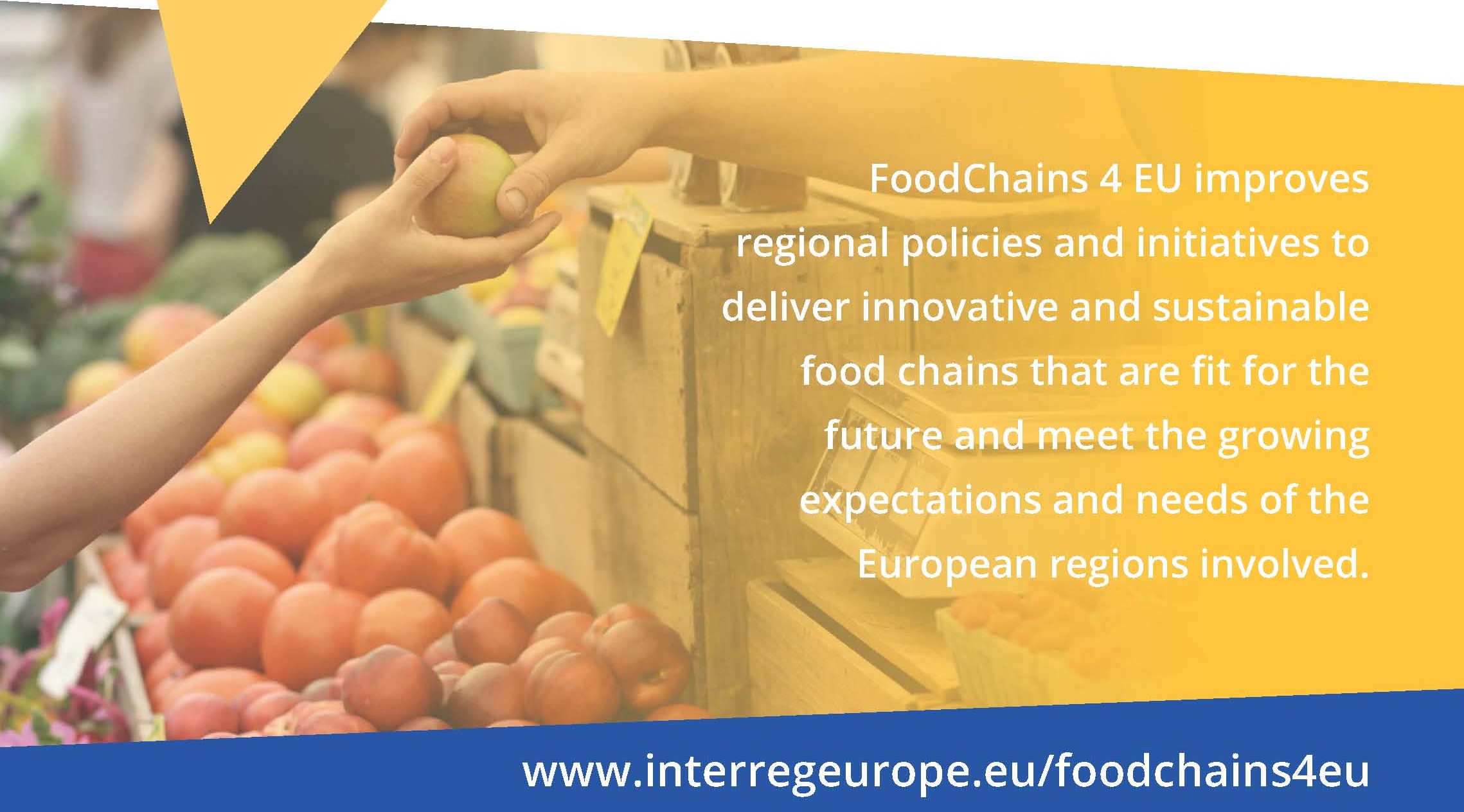
Improved regional food chains through FC4EU project
FC4EU project contributed to significant changes of food chains policies in the 5 partner regions.
The growing European population has ever-higher expectations related to food quality and sustainability in terms of processing, packaging, storage, waste reduction, distribution and retail. Innovation plays a key role in meeting these needs and fostering sustainable food chains fit for the future.
The aim of the FoodChains 4 Europe project is to improve the implementation of regional policies that stimulate the delivery of innovation to create sustainable food chains in five participating regions: Flevoland (NL), Plovdiv/Sofia (BG), Emilia-Romagna (IT), Maramures (RO) and Greater Manchester (UK)
These regions all have large food sectors that provide social and economic benefits for their citizens. However, each region recognises that the only way to remain competitive is to improve the sustainability of this sector. This requires innovation in all stages and aspects of the food chain. FoodChains 4 Europe will focus on innovation that contributes to the environmental sustainability of the food chain whilst contributing to social sustainability through increased access to high quality food. The consortium will support food sector businesses to deliver these innovations, both on financial and technological aspects
In order to achieve this, regional authorities and universities will partner in each region and work with other regional stakeholders to share and exchange their expertise in food innovation during a series of peer reviews and interregional learning activities.
Based on this exchange, each region will develop and implement an action plan that enables regional businesses to deliver sustainable innovations in the food chain. The sustainable innovations will be developed with support of the European programmes for Growth and Jobs in the participating regions. Indeed, the regional and national Managing Authorities of the programmes are heavily involved in all activities of this project.
€1,466,353.00
Research and innovation
The project addresses priority axis 1-Strengthening research, technological development and innovation of the Operational Program for West Netherlands ‘Kansen voor West’ [CCI / 2014NL16RFOP002].In particular, priority 1b and the specific objective 1-Valorisation: increasing the share of - primarily internationally marketable - innovative products and services in overall enterprise turnover.The specific objective is to be achieved through cooperation between SME’s and knowledge institutions to generate an increased number of marketable products and services in the top sectors defined in the regional S3 strategy.One of these top sectors is Agri-food with specified topics like Residual waste flows, One Health, Urban agriculture, Efficient use of natural resources and space (including bio-based economy), Food safety and Chain management.This specific objective includes the entire innovation chain and is focusing on cross-overs between the defined top-sectors: new combinations of knowledge and technology from multiple sectors.To improve the delivery of this specific objective in the food innovation chain, the stakeholders in Flevoland (authorities, knowledge institutes and companies) would benefit considerably from exchange and policy learning on two specific challenges:1) approaches for improved SMEs - knowledge cooperation in the stages from valorisation driven applied research to market introduction,2)boosting the application of new knowledge through testing and demonstration.
The OPIC 2014-2020 [CCI number: 2014BG16RFOP002] is part of the implementation of the EU structural and investment funds (ESIF) in Bulgaria under the objectives for Growth and Jobs.This project addresses Priority Axis 1:Technological development and Innovation, Investment Priority 1.1.Technological development and innovation, Specific Objective 1.1.:Increased innovation activity of enterprises of OPIC 2014-2020.Specific Objective 1.1 of OPIC aims at directly contributing to promotion of innovation activity of enterprises in the thematic areas identified in RIS3, among which are industries for healthy life and biotechnology (including food):
a) fostering partnership between innovative enterprises and academia;
b) introducing specific measures for support of innovation activities in enterprises;
c) further development of existing or introducing new financial instruments for funding innovation activities;
d) support for research and innovation infrastructure for business needs;
e) internationalisation of innovation process;
f) popularisation of good practises of innovation activities.
Activities in support of SO 1.1 will lead to increased innovation activity of Bulgarian enterprises in the food chain by creating the necessary innovation environment and infrastructure for development of innovation; stimulating R&D activities and innovation in and for enterprises, incl. through cooperation between enterprises or between enterprises and research institutes and universities.
The Regional Operational Programme Emilia-Romagna ERDF 2014-2020 (ERDF - ROP) [CCI number: 2014IT16RFOP008] programme is the document that defines the strategy and operations for the use of funds allocated to the Region by the European Regional Development Fund. The programme priorities include TO1 - Research and innovation. It aims to boost innovation by improving the regional system of R&D; contribute to achieving the Europe 2020 targets for smart, sustainable and inclusive growth and promote private and public investment on research while supporting innovation and productive investments, in line with the regional smart specialization strategy (RIS3). In the RIS3 of the Emilia-Romagna region, the agri-food sector is identified as one of the two (vertical) priority. Among the specific objectives (SO) of TO1 there are (1.1) to increase the Research and Innovation activity of enterprises, (1.2) to strengthen the innovation system in the region.
One of the aim is to support collaborative activities by enterprises in the R&D area, with the aim to developing new products, develop new more sustainable production processes, develop new technologies and services (action 1.1.4). However it is very difficult to develop an effective relationship between the SMEs of the food industry. In this project we will develop a plan for improving the implementation of the ERDF programme under TO1 by focussing on interventions toward innovation in the agro-food system.
ROP 2014-2020 [CCI / 2014RO16RFOP002].
Priority Axis 1:Promoting Technology Transfer; Thematic Objective OT1:Strengthening research, technological development and innovation; Investment Priority 1.1: enhancing regional R&TD and innovation capacities linked to regional economic development objectives;Specific Objective OS 1.1 Increasing innovation in companies by supporting innovation and technology transfer entities in the areas of smart specialization.Priority 1 and Specific Objective 1.1 aim to increase the number of innovative SMEs that cooperate with each other through support for the creation and development of innovation and technology transfer entities in line with the principle of smart specialization. Food safety, food packaging and biotech for food are key sectors for smart specialisation in the North-West Region.The aim is to enhance the transfer of research results into innovative commercial applications, resulting with an impact on the market. Additionally, actions shall contribute to intensification in the distribution of technological progress on the market and in society in general.The OS1.1 is important in Romania and in the North-West Development Region, due to the fact that the connection and cooperation between different stakeholders in the innovation ecosystem (education, R&D&I and businesses) remains low. The result is a lack of transfer on the market of new, innovative products and ideas, even though research activity is quite intensive.
Greater Manchester European Structural Investment Fund 2014-2020 (GM ESIF) is the plan that sets out how the EU funds allocated to Greater Manchester region from the ERDF England Operational Programme 2014-2020 will be spent.
ERDF OP PRIORITY 1: Promoting Research and Innovation, SPECIFIC OBJECTIVE 1.2: Increase investment in research and innovation by SMEs in sectors and technologies identified through smart specialisation. SPECIFIC OBJECTIVE 1.3: Increase the number of SMEs engaged in knowledge exchange, collaborative and contract research and innovation with research institutions, public institutions or large enterprises to help them bring new products and processes to market.
The GM ESIF Priority Axis - SCIENCE, INNOVATION AND KNOWLEDGE ECONOMY delivers against this Priority Axis in the ERDF OP.
It aims at promoting Research and Innovation by enhancing the links between research organisations and community/social enterprise to develop business to enhance and diversify GM’s economic base. The development of sub regional sector development in the food industry focusses on existing and emerging growth sectors and targeted provision for businesses in deprived communities and hard to reach groups.
In this project we want to improve governance and opportunity around the food industry in GM in order to enable the development of new innovation in the food value chain that capitalises on emerging opportunities from sector development.

FC4EU project contributed to significant changes of food chains policies in the 5 partner regions.
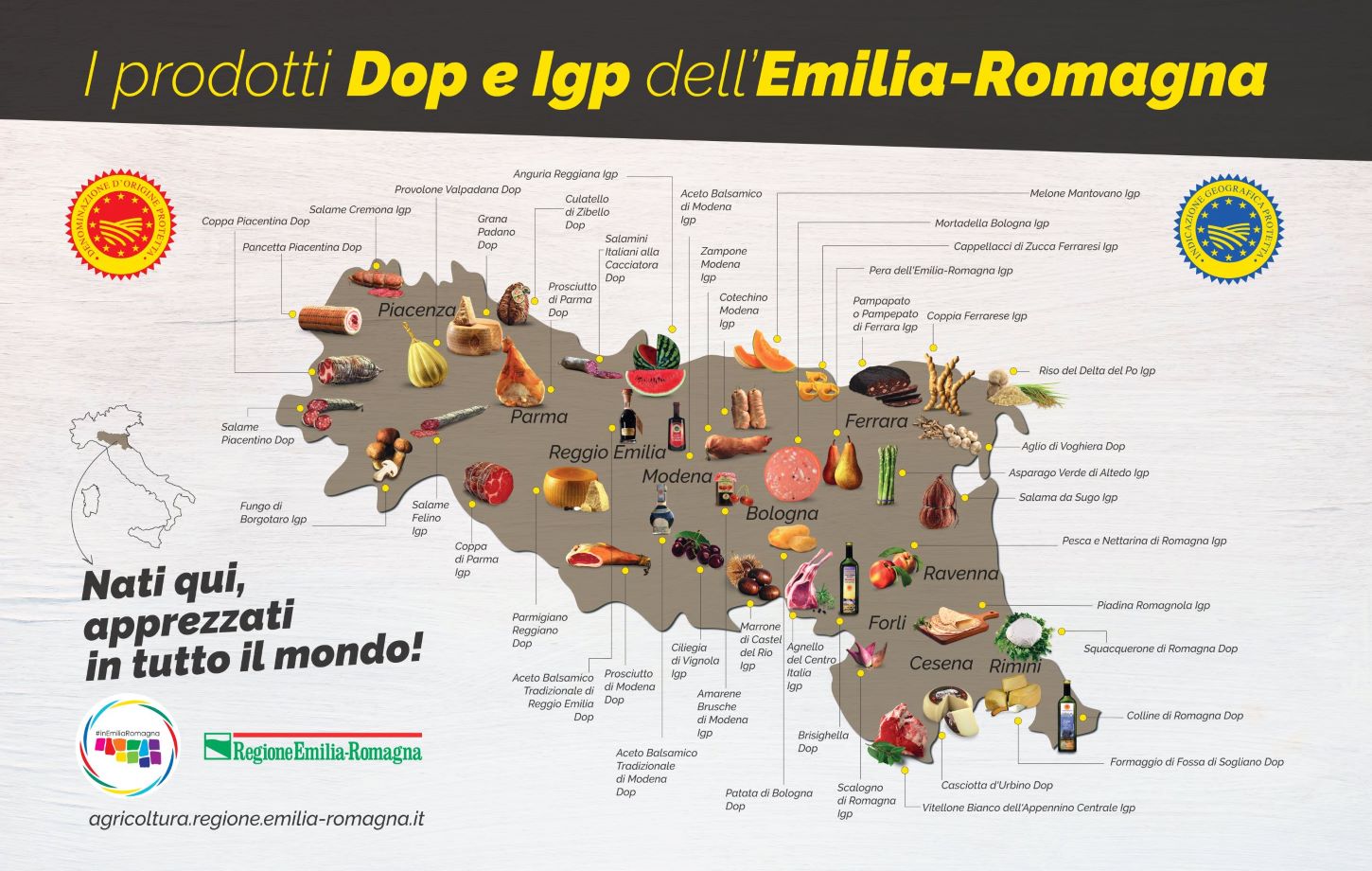
The FC4EU Action Plan of Emilia-Romagna improves regional policies to stimulate the delivery of innovation supporting the sustainable food chains
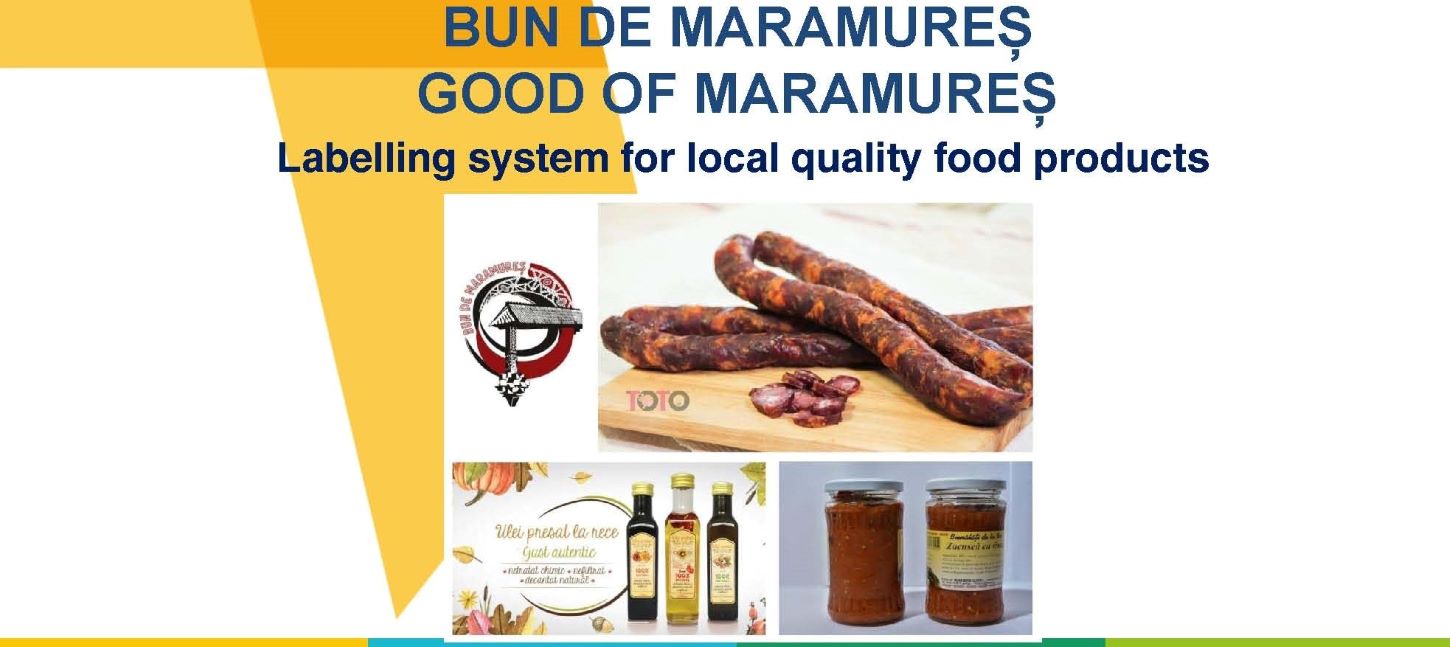
Results of Maramures Action Plan elaborated within FC4EU project for innovate the food chains in Maramures
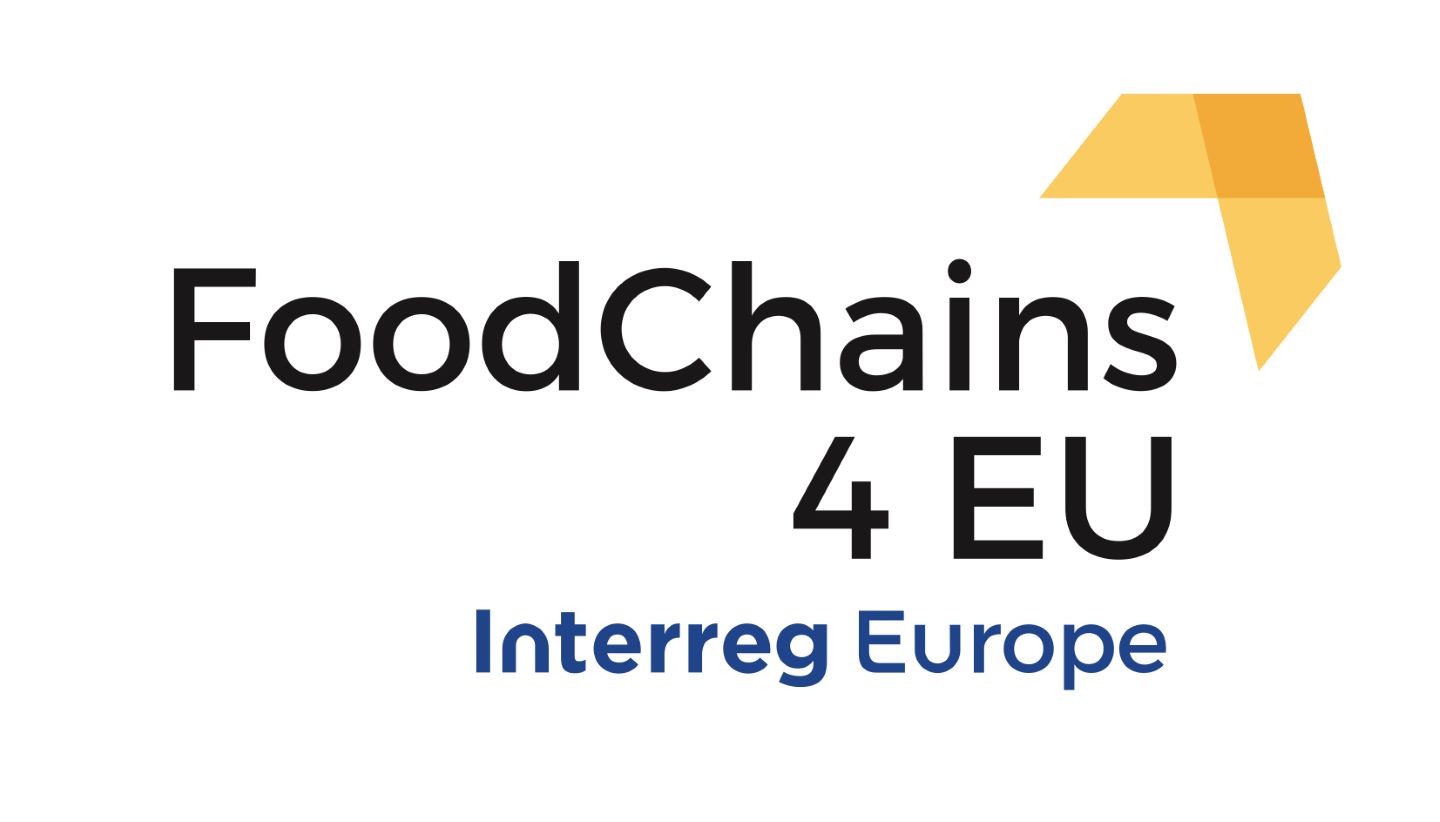
The Final Monitoring Board Meeting of the FC4EU project will be held on 28th of October 2021

The Final Conference of the FoodChains 4 EU project will take place online, on 7th of October 2021, between 10.00 - 15.30 (CET)

The online final conference of the FC4EU project will present the project results and will look ahead at what is needed to further innovate the food chain.
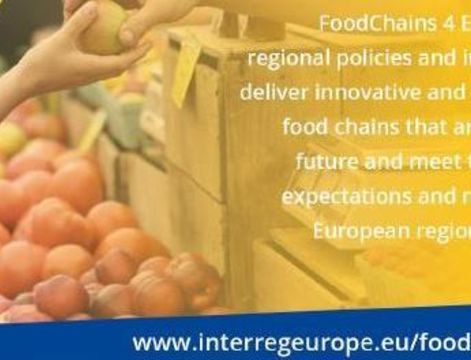
Save the date: The final conference FC4EU will be held online, broadcasted from the Food Forum in Almere, on the 7th of October 2021

The new Oldham Food Partnership board shall be made up of representatives from 3 key themes of new Food Strategy, from public, private and Voluntary Sector
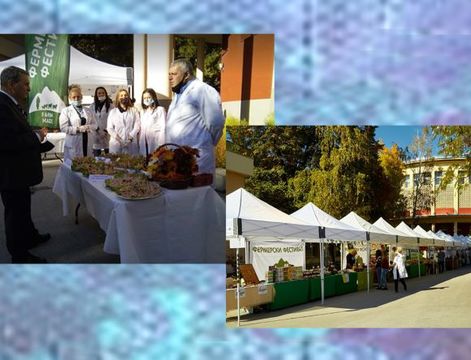
Bulgaria launched, due to the FC4EU project, initiatives and projects to establish infrastructure for improved R&D and innovation in food chain companies
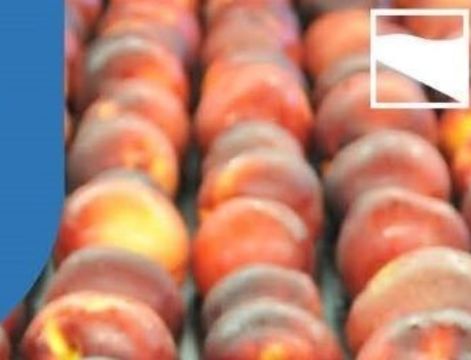
Emilia-Romagna presented the contribution of Interreg Europe projects FoodChains 4 EU and STRING in influencing the regional agricultural policies